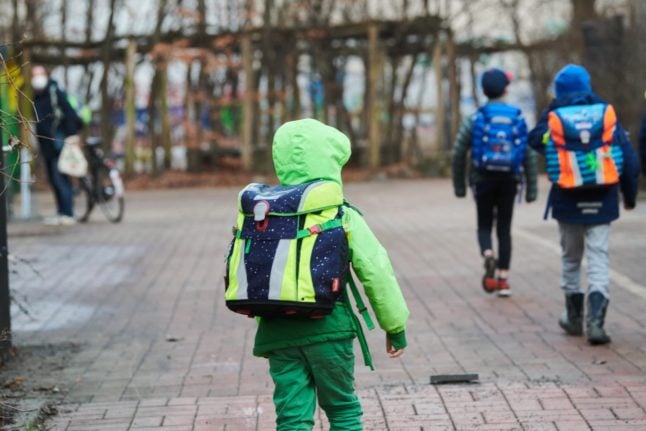“The virus isn't making it easy for us,” Spahn told German broadcaster ARD.
“We're seeing that the numbers are climbing again. That's annoying, and it brings back some uncertainty. That's why caution, testing and vaccinating must continue to guide our path.
Germany has been in a partial lockdown since November and had succeeded in bringing down the infection rate in recent weeks.
But the numbers then began to plateau and even slightly increase in recent days, a trend blamed on the rapid spread of the more contagious British variant of the virus.
Experts are warning that Germany could be at the start of a third coronavirus wave, even as the country's 16 states begin to relax some of their curbs.
From Monday, schools and daycare centres are set to reopen in 10 German regions.
READ ALSO: Several German states prepare to open schools Monday
Many schools plan to limit class sizes alongside other precautions such as mask-wearing and airing out rooms, but critics have questioned whether the timing is right for the reopenings.
Spahn said a balance has to be struck between protecting Germans from the risks posed by new, more infectious virus strains and the necessity for children to have some kind of “normal daily life”.
The impact of school reopenings would be closely watched before deciding the next steps in the pandemic, he added.
“Once schools and daycares reopen, millions more people will be out and about. We need to see what difference that makes concerning the mutations,” Spahn said.
“We can't make any false promises” about further relaxations, he added.
Spahn and Germany's 16 regional health ministers will on Monday discuss moving teachers and child carers higher up the vaccine priority list.
If approved, they would move from group 3 to group 2, making them next in line once Germany has vaccinated most of its elderly people living in care homes.
Germany added another 7,676 coronavirus cases on Sunday, bringing the total since the start of the pandemic to more than 2.3 million.
More than 67,000 people have died from the virus, according to the Robert Koch Institute for disease control.



 Please whitelist us to continue reading.
Please whitelist us to continue reading.
Member comments